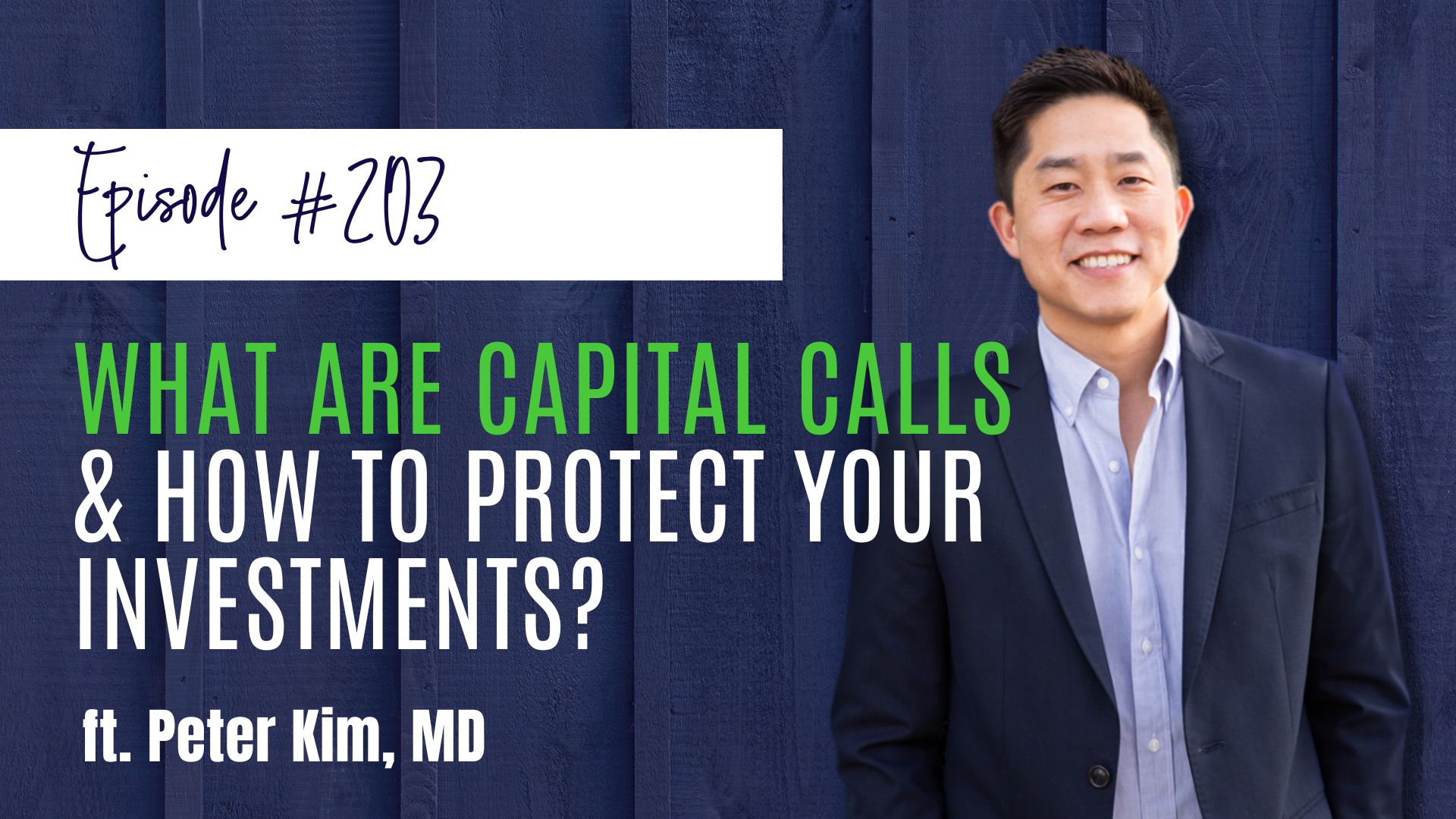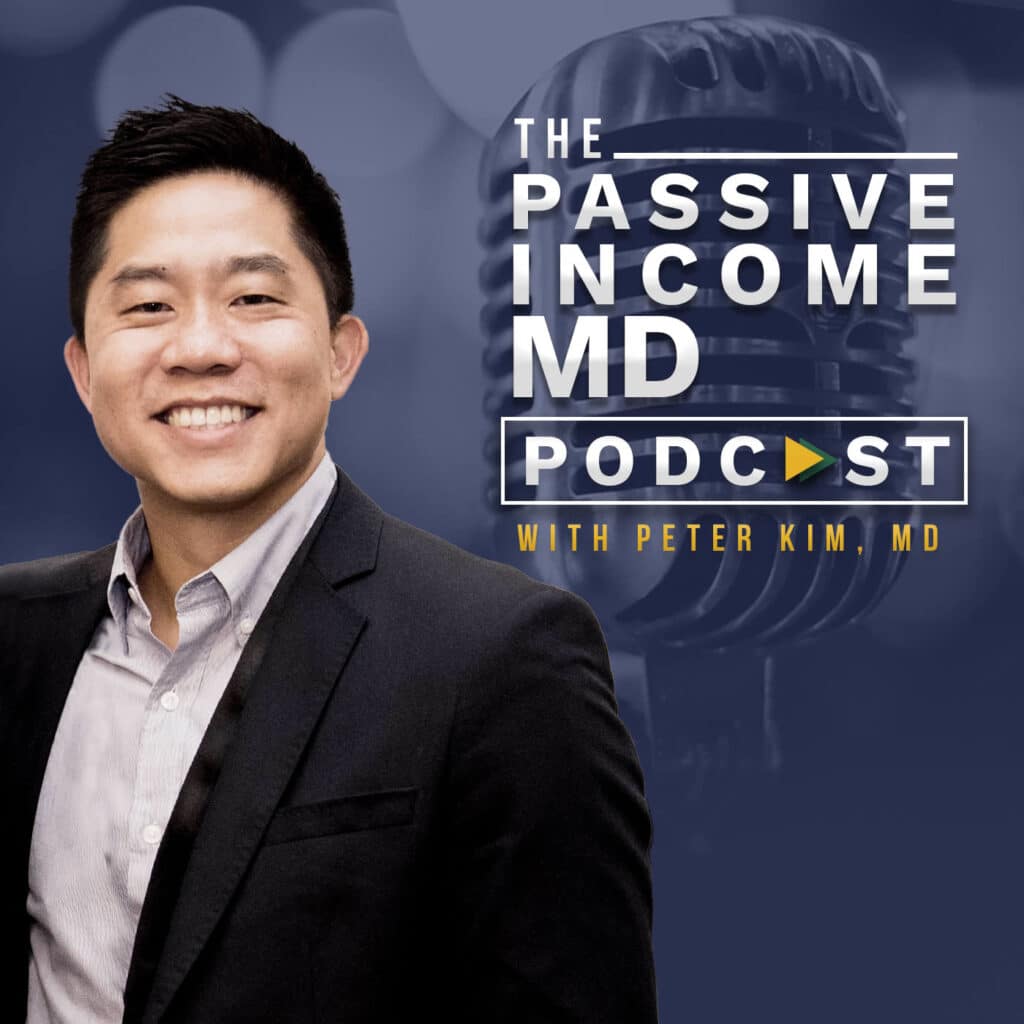
#203 What are Capital Calls & How to Protect Your Investments ft. Dr. Peter Kim
In this episode, Dr. Peter Kim dives deep into Capital Calls. He explains why they happen, how to respond, and more importantly, how to take action and be proactive throughout the process. Tune in to learn how to protect your investments, ask the right questions, and potentially seize hidden opportunities – even in a downturn!
We talk in-depth about all of this and more in our course–Passive Real Estate Academy. Want to learn everything about investing in real estate with confidence? You can grab your seat right here!
Like what you heard? Subscribe and Rate us!
Episode Highlights
Now, let’s look at what we discussed in this episode:
- Capital Calls in a Downturn
- What is a Capital Call and Why Does it Happen?
- How to Respond to a Capital Call
- Due Diligence Before and After a Capital Call
- Proactive Measures You Can Take
Here’s a breakdown of how this episode unfolds.
Episode Breakdown
Capital Calls in a Downturn
Peter opens the episode by acknowledging the challenging economic climate, highlighting inflation, high interest rates, and the resulting market volatility, especially in commercial real estate.
He reflects on the 2023 freeze caused by interest rate uncertainty, leading to a slowdown in transactions, and potential seller losses, and shares that at such times, it is important to be surrounded by optimistic and opportunistic individuals.
Transitioning to the main topic, he explains that with the significant changes and instability in commercial real estate, capital calls are becoming more frequent. The episode will delve into what capital calls are, how they impact investments, why they occur, and how you as an investor can respond effectively.
“Warren Buffett, one of his famous quote is ‘Be fearful when others are greedy, and be greedy when others are fearful’. Me, being a contrarian in a way and not just following the tide, that’s how people ultimately do well in all parts of the market.” — Peter Kim, MD.
What is a Capital Call and Why Does it Happen?
Dr. Peter Kim dives into what Capital Calls are and why they happen, listing some of the factors that might lead to one.
Ideally, the income from rent should comfortably cover expenses like property taxes and maintenance. But recently, the equation has become a little unbalanced. While rental income hasn’t increased much, expenses have gone up due to rising property taxes and interest rates. This can unfortunately turn a profitable building into one that’s struggling to make ends meet.
Another problem comes from how some apartment buildings are financed, explains Dr. Kim. They might have loans with variable interest rates, meaning the interest payments can fluctuate. This was a good strategy when interest rates were low, but now that they’ve climbed, borrowing costs have become more expensive. On top of that, refinancing these loans can be difficult because the value of the buildings themselves might have decreased due to the current market climate.
So, if an apartment building needs more cash to cover these rising expenses or address the higher interest rates, Capital Calls happen. It’s essentially a request to investors for additional funds that can be used for various purposes, like renovations to attract higher-paying tenants or simply covering the building’s ongoing costs until things stabilize.
“So what is a Capital Call? It’s when an investor gets a call or notice that they need to put more money into a deal. They probably made their initial investment, they expected that investment to go well, what they didn’t expect was to have to pony up more money into the investment for whatever reason.” — Peter Kim, MD.
How to Respond to a Capital Call
Dr. Peter Kim explains the dilemma investors encounter when responding to a capital call. It essentially presents a decision: inject more funds into the property or opt-out.
Should You Invest More?
Choosing to contribute additional funds increases your ownership share in the property, which can be advantageous if you have faith in its future.
What If You Don’t Invest More?
The downside is that if other investors inject money while you refrain, your ownership stake diminishes due to the increased total investment pool.
Due Diligence Before and After a Capital Call
Dr. Kim underlines the importance of due diligence for investors in real estate syndications, stressing its role both before and after a capital call.
He reasons that even seasoned operators were affected by the dramatic rise in interest rates and that while a single unexpected event might be manageable, a perfect storm of rising insurance costs, increased maintenance expenses, and other issues can quickly destabilize a property’s finances.
When a capital call arrives, he says it’s time to dig deeper. Investors should ask themselves some critical questions: Is this just an unfortunate circumstance, or does it point to a larger problem with the operator’s competency? Can the situation still be salvaged? Do you believe in their business plan moving forward?
Ultimately, the decision boils down to your trust in the sponsor or operator’s ability to navigate these rough waters.
Proactive Measures You Can Take
Dr. Kim emphasizes that while investors have limited control after entrusting their money to a sponsor, they can be proactive throughout the investment lifecycle.
To prepare, investors should stay vigilant. Reviewing quarterly statements regularly helps detect worrying trends early, and it’s essential to exercise the crucial right to be informed by reaching out to sponsors to inquire about their strategies. This proactiveness should continue even after contributing to a capital call. Keep a close eye on quarterly reports and attend sponsor calls to monitor the property’s progress.
Peter also shares how downturns can be valuable learning opportunities. By analyzing both successful and unsuccessful investments, investors can gain valuable insights. When considering future deals, ask pointed questions about the sponsor’s risk mitigation strategies and the debt structure of the property. He also talks about the need to be well-diversified. Spreading investments across different markets, asset classes, and operators helps mitigate risk.
Downturns can present excellent opportunities, and Dr. Kim believes those who are prepared are best placed to seize them. By educating oneself, partnering with the right people, and making informed decisions, investors can position themselves to thrive even in a volatile market.
Lastly, Peter recommends joining the Passive Real Estate Academy, a thriving community for those seeking to learn due diligence in real estate investments.
“The people who have the investment capital, the network, the education right now are poised to go on another run in the future, and those people will benefit tremendously.” — Peter Kim, MD.




